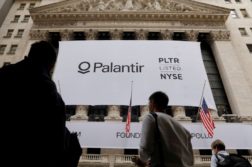Stablecoins can include features that are typical of regulated securities, meaning they might be able to avoid new government oversight.
Cryptocurrencies backed by cash could potentially be covered by the same regulations used to govern securities, according to a global financial oversight group. The finding could help move forward projects such as Facebook’s Libra digital currency, known as a stablecoin.
The International Organization of Securities Commissions (IOSCO), made up of securities regulators from the U.S., Europe and Japan, said its analysis shows “stablecoins can include features that are typical of regulated securities.”
The IOSCO made its proclamation after its Oct. 30 meeting in Madrid. Earlier last month, a G7 working group published a report on stablecoins, saying they have many of the features of traditional cryptocurrencies but may be more capable of serving as a means of payment and a store of value.
“And they could potentially contribute to the development of global payment arrangements that are faster, cheaper and more inclusive than present arrangements,” Ashley Alder, chair of the IOSCO Board, said.
Even so, the G7 group cautioned that stablecoins are just one of many initiatives that seek to address existing challenges in the payment system and, “being a nascent technology, they are largely untested.
“These potential benefits can only be realized if significant risks are addressed. Stablecoins, regardless of size, pose legal, regulatory and oversight challenges and risks,” the report said. The group said the risks may fall outside existing regulatory frameworks, requiring potential revisions to current standards or even the creation of new ones.
The risks posed by stablecoins include those related to money laundering, illicit finance, and consumer and investor protection.
Shortly after the G7 report was released, the G20 published a statement agreeing that stablecoins have both potential benefits for financial innovation and risks. IOSCO said it would help the global G7’s Financial Stability Board’s work on stablecoins for the Group of 20 Economies. The IOSCO FinTech Network will also continue to assess and consider global stablecoin initiatives
“It is important that those seeking to launch stablecoins, particularly proposals with potential global scale, engage openly and constructively with all relevant regulatory bodies where they may be seeking to operate,” Alder said.
Unlike Bitcoin, which arguably has no intrinsic value because its based solely on supply and demand, “stablecoin” value is based on fiat currency or other assets to which it’s tied such as real estate, precious metals or artwork.
Facebook’s Libra has become the public face for many other stablecoin initiatives because it could be launched globally and used by any of the social network’s 2.4 billion active users.
The cryptocurrency app will allow Facebook users to send, add or withdraw money “in just a few taps,” using WhatsApp, and it will allow someone to fill their wallet, cash out or split a restaurant tab all using Messenger, the company said.
Libra, along with its digital wallet Calibra, is scheduled to launch in 2020, but pushback from U.S. and European regulators could delay that move. Last month, while testifying before U.S. House Committee on Finance, Facebook CEO Mark Zuckerberg said he would not green light Libra until regulators are okay with it.
But in testimony before the Finance Committee, Zuckerberg warned that other governments, such as China, will achieve a financial edge on the U.S. “While we debate these issues, the rest of the world isn’t waiting. China is moving quickly to launch similar ideas in the coming months,” Zuckerberg said.
A week later, Chinese President Xi Jinping called for more research and investment into blockchain technology, saying there needs to be greater urgency in the development of the distributed ledger technology.
Facebook is not alone in its efforts to create stablecoin currency.
Today, IBM, Intel, JPMorgan Chase, Microsoft and the Enterprise Ethereum Alliance (EEA) announced they had published version 1.0 of a specification to enable businesses to create stablecoins.
Earlier this year, JPMorgan Chase launched what is considered to be the first stablecoin backed by a major bank. JPM Coin, as the bank is calling its new cryptocoin, is backed by U.S. dollars in accounts designated at JPMorgan Chase N.A. and used for cross-border settlement between institutional clients.
Wells Fargo has also announced plans to create a stablecoin for cross-border payments.
Author: Lucas Mearian
Read more at: https://www.computerworld.com/article/3451533/cryptocurrencies-backed-by-cash-could-elude-new-regs.html







